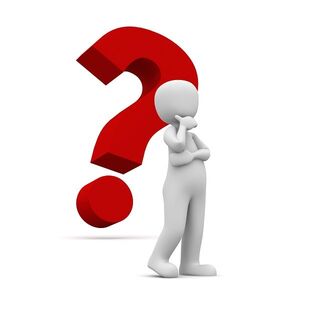Memory
The Museum of You
An exercise that can provide insight into yourself.
Posted November 1, 2021 Reviewed by Jessica Schrader
Key points
- Our most memorable objects can help illuminate who we were and perhaps who we are.
- In your own personal museum, items of emotional significance may include first-recalled objects from childhood or love letters from college.
- These items may have a common thread, offering insight into your essence or aspirations.
Source: Peggy Marco/PixabayWhat if everyone had their own personal museum? … One exhibit in the Museum of Lisa would feature the dusty, plastic tumbler from which Lisa imbibed her first drink. Underneath, a plaque would read, “This is the authentic cup in which Lisa, age 10, mixed together scotch, rum, and gin acquired from her parent’s liquor cabinet." Another exhibit would feature the actual bright orange Pontiac Le Mans convertible she hopped a ride in to run away from home at age 15. And look! Over there, a replica of the rehab center in Columbus, Ohio that Lisa entered at age 19. Next, if you walk this way, we enter the early Tunisian period. Lisa has sobered up and joined the Peace Corps… All is well. But oh no, what is this?! A picture of Lisa with a bottle of beer in each hand, a cigarette dangling from the corner of her mouth. We must have entered the relapse era. —Eric Weiner, The Geography of Bliss.

We may think about our most memorable experiences but less often about memorable objects. Those can illuminate who we were and perhaps are.
What would the Museum of You include? It may help to think of any old things you still have or that your parents are keeping for you.
Start with the first object of emotional significance that you can recall. Recent research finds that most people’s first recollections start in toddlerhood, earlier than previously thought. Do your first-recalled objects say anything about what mattered or still matters to you? For example, if an early memory is of hugging a teddy bear, that could foreshadow that affection is primary to that person. If a person’s earliest memory is of sneaking into the cookie jar after the parent said, “No more cookies!” that might hint of an incipient rebellious or even dishonest nature.
Now move on to your school years. Maybe you recall a friendship note from a classmate. Or the AAA TripTik from the family driving vacation to Niagara Falls. My favorite possession was a big hi-fi speaker. It was the first big thing I bought from saving up my allowance. It signified how important music was to me and still is. It also presaged that I’m comfortable in delaying gratification.
Here are some examples from adulthood that might help evoke important items from your life.
From young adulthood: that dyed T-shirt, basketball uniform, your only A+ on a paper, a picture of or love letter from your college sweetheart, your transcript, the trophy from finishing second in a road rally, a memento from your study-abroad program.
Later on: Your wedding ring even if you divorced, your first offer letter of employment, your best performance review or worst one—a wake-up call, a meaningful thank-you letter, the book you choose to reread. One of my favorite possessions is the tiny toy rat that sits at the base of my computer monitor. I had an actual rat that was scurrying around my attic, and I told a client about it. When she returned from a business trip to Beijing, she brought me that toy rat. I keep it not just because it was funny, although it was, but because the client liked me enough to search it out for me on her business trip.
So, as you look at your Museum of You, do you find any common threads, perhaps that say something about your essence? Or your aspirations?
Now think about what common things you excluded from your Museum of You: Those pertaining to travel? Family? Work? Romance? Recreation? Materialistic items? What does that say about you?
Finally, do you want to assemble those items in one place, an actual Museum of You?
I read this aloud on YouTube.
I offer another approach to self-discovery in The Half-Hour Autobiography.


